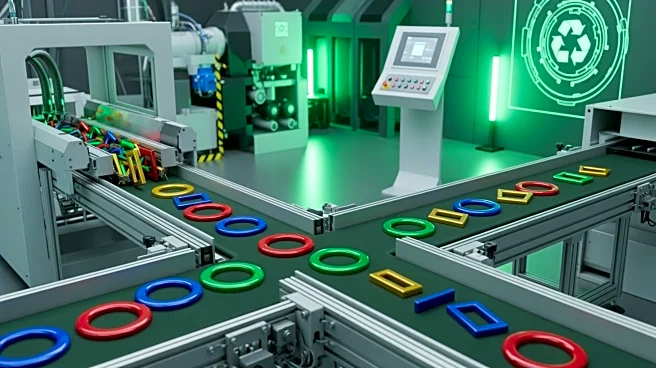What's Happening?
A team of researchers has developed a new method for recycling rare earth elements (REEs) from waste magnets, which is less energy-intensive and environmentally damaging than current methods. This process
involves using an electric current to rapidly heat waste magnets and chlorine gas to separate non-REEs, keeping them in the vapor phase. The research, published in the Proceedings of the National Academy of Sciences, aims to help the United States meet its growing demand for these elements by recovering them from electronic waste. The method builds on previous work using flash joule heating to convert carbon sources into graphene.
Why It's Important?
The development of this recycling method is significant as it addresses the environmental and economic challenges associated with mining REEs, which are crucial for various technologies. By recovering REEs from waste, the U.S. can reduce its reliance on expensive and environmentally harmful mining operations. This advancement could lead to more sustainable practices in the electronics industry and support the country's technological growth. Stakeholders in the tech and environmental sectors stand to benefit from reduced costs and environmental impact.
What's Next?
The researchers plan to further refine the process and explore its scalability for industrial applications. Potential reactions from industry leaders and policymakers could include increased investment in recycling technologies and the establishment of new regulations to promote sustainable practices. The success of this method may also encourage other countries to adopt similar approaches, potentially leading to global improvements in e-waste management.
Beyond the Headlines
This development could have long-term implications for the global supply chain of REEs, potentially reducing geopolitical tensions over resource access. The method's environmental benefits align with broader sustainability goals, highlighting the importance of innovation in addressing complex environmental challenges.








